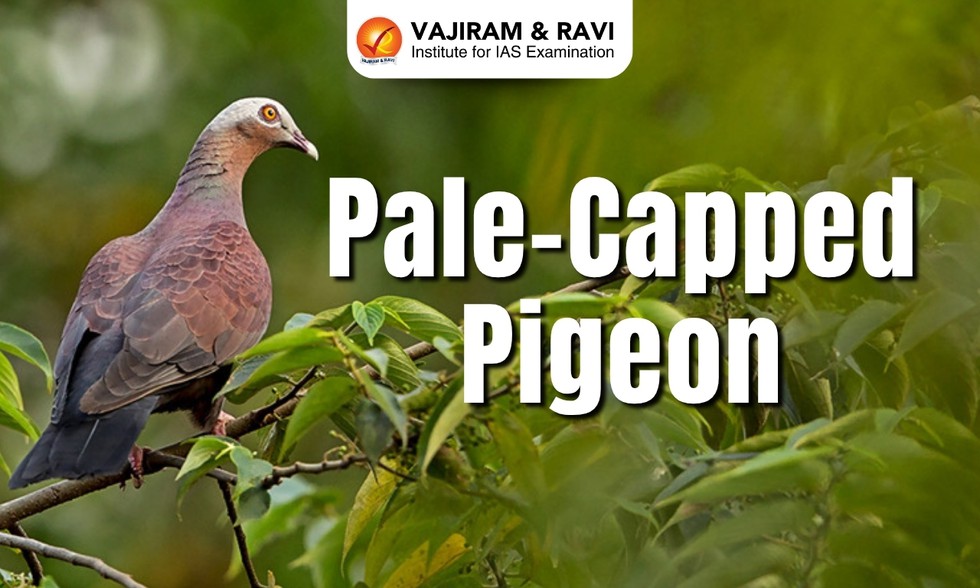About Pale-Capped Pigeon:
- The pale-capped pigeon, also known as the purple wood pigeon, is a large, dark purplish-maroon bird that is found in parts of the Indian Subcontinent and Southeast Asia.
- Scientific Name: Columba punicea
- Distribution: It is very locally distributed across its broad range, which encompasses parts of northern and northeastern India, Bangladesh, Myanmar, Thailand, Laos, Cambodia, and Vietnam.
- Habitat:
- It largely inhabits forest habitats, chiefly, primary or secondary evergreen forests, and bamboo and agricultural fields in close proximity to forests.
- Its range extends from the lowlands up to 1,600 m.
- Features:
- It is mainly brown above and chestnut below with a sheen of green or amethyst.
- Males have a whitish-grey-cap while females have a brownish-grey-cap and less gloss on the feathers.
- They are frugivores, foraging in small groups in the canopy of trees but sometimes descending to the ground for seeds and fallen fruit.
- Conservation Status:
- IUCN Red List: Vulnerable
Key Facts about Dehing Patkai National Park:
- It is located in the Dibrugarh and Tinsukia districts of Assam.
- It is situated at the foothills of the Patkai Hill Ranges, on the banks of the River Dehing (a tributary of Brahmaputra), and adjacent to the Namdapha Wildlife Sanctuary.
- Also known as the ‘Amazon of the East’, it harbours the longest stretch of tropical lowland rainforests in India.
- It covers an area of 231.65 sq.km.
- The climate of the region is mostly tropical, with an annual rainfall of more than 4,000 mm.
- There are more than a dozen different ethnic groups living in the area, including the indigenous Assamese communities, particularly Tai Phake, Khamyang, Khampti, Singpho, Nocte, Ahom, Kaibarta, Moran, and Motok, Burmese, and non-indigenous Nepali people.
- Vegetation: The park is a deciduous rainforest with semi-evergreen and lush green flora.
- Flora: It is dominated by species like Hollong, Nahor, Mekai, Paroli, Simul, various orchids, ferns, cane, and bamboo.
- Fauna: The rich biodiversity includes diverse species such as slow loris, pig-tailed macaque, stump-tailed macaque, capped langur, Indian leopard, Asian elephant, royal Bengal tiger, gaur, Himalayan black bear, clouded leopard, barking deer, Chinese pangolin, etc.
